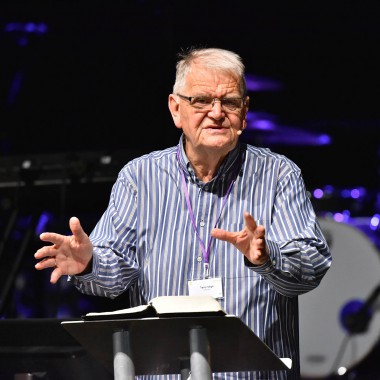
Filed in:
Articles
So What Is Newfrontiers?
Jesus referred to the church twice in the gospels. He announced, ‘I will build my church’, that is his eternal bride, scattered among the nations and throughout the ages (Matt. 16:18). He also spoke about relational conflicts being resolved initially by inviting the help of some friends and, if all else fails, by telling ‘the church’, referring to the church where you live (Matt. 18:17). So Jesus spoke of the universal church and the local church.
So what is a ‘denomination’ and what is Newfrontiers? Denominations have either tended to exist as the result of historical events or are often associated with a particular doctrine or location. Hence we know of the ‘Church of England’ or the ‘Methodist Church’ or the ‘Baptist Church’, but there is actually no Biblical basis for any of these to be referred to as ‘Churches’.
The Bible knows only the universal church and the local church, hence the New Testament speaks of the churches of the Gentiles (Rom. 16:4) or the churches in Judaea (Gal. 1:22), not the Church of Judaea.
Newfrontiers
So what is Newfrontiers? It is a number of local churches, each with its own identity, membership and elders, working together on a mission.
The Bible shows that the apostle Paul laboured with a number of local churches which the theologians have called the ‘Pauline Churches’. They were essentially churches that came within his personal apostolic orbit, having been either birthed by him or through relational developments.
His original home-base church in Antioch came into existence, not through his ministry but spontaneously, through the witness of scattered believers, which he subsequently joined. The church at Colossae had ‘never seen his face’ (Col. 2:1), but came to birth presumably through the witness of Paul’s colleague, Epaphras; but it clearly came under his wing (Col. 1:7, 8).
This growing number of churches became Paul’s ‘sphere’ which was an identifiable group co-labouring for the gospel led by their God-given elders. For instance, he thanked the Philippian church for instance for their partnership in the gospel (Phil. 1:5) and spoke of his ‘sphere’ reaching as far as the Corinthians (2 Cor. 10:13), but expressed a desire to reach the regions beyond (2 Cor. 10:16). The well-being and spiritual strength of the churches he served would affect his ability to extend his sphere so, as JB Phillips translates 2 Corinthians 10: 15, ‘your growing faith will mean the expansion of our sphere of action’.
Because of God’s kindness and favour, Newfrontiers, the name we have given to the sphere we represent, has now reached many nations. Initially it could be described as the sphere of Terry Virgo and his apostolic team; but as time has passed, new leaders have emerged demonstrating their own apostolic gifts, and so several new spheres have developed around them.


